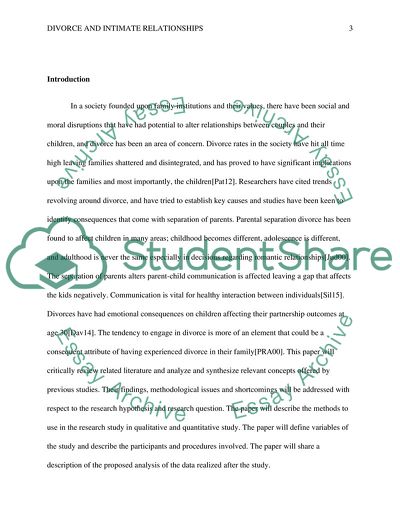Cite this document
(Implications of Divorce on Children Research Proposal Example | Topics and Well Written Essays - 1750 words, n.d.)
Implications of Divorce on Children Research Proposal Example | Topics and Well Written Essays - 1750 words. https://studentshare.org/sociology/1871251-parental-separation-divorce-in-childhood-and-partnership-outcomes-at-age-30
Implications of Divorce on Children Research Proposal Example | Topics and Well Written Essays - 1750 words. https://studentshare.org/sociology/1871251-parental-separation-divorce-in-childhood-and-partnership-outcomes-at-age-30
(Implications of Divorce on Children Research Proposal Example | Topics and Well Written Essays - 1750 Words)
Implications of Divorce on Children Research Proposal Example | Topics and Well Written Essays - 1750 Words. https://studentshare.org/sociology/1871251-parental-separation-divorce-in-childhood-and-partnership-outcomes-at-age-30.
Implications of Divorce on Children Research Proposal Example | Topics and Well Written Essays - 1750 Words. https://studentshare.org/sociology/1871251-parental-separation-divorce-in-childhood-and-partnership-outcomes-at-age-30.
“Implications of Divorce on Children Research Proposal Example | Topics and Well Written Essays - 1750 Words”. https://studentshare.org/sociology/1871251-parental-separation-divorce-in-childhood-and-partnership-outcomes-at-age-30.


